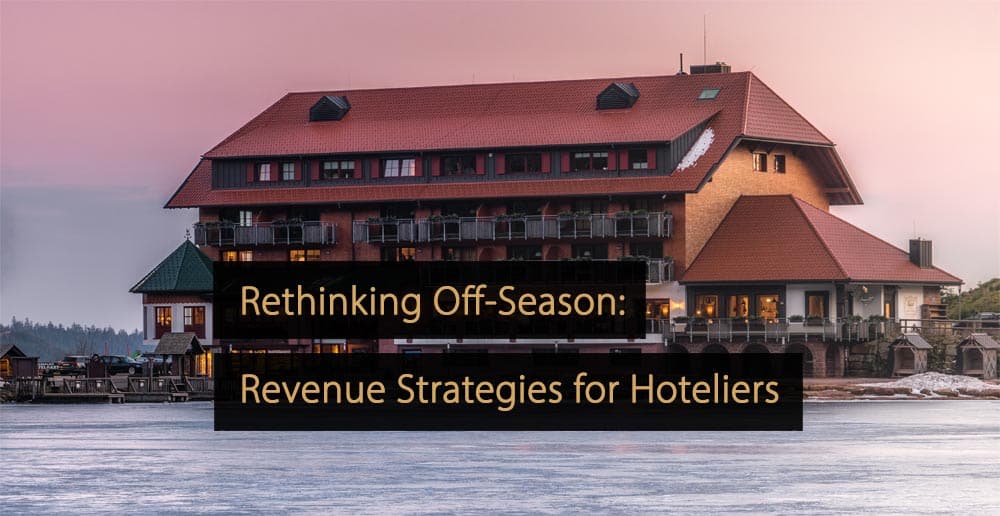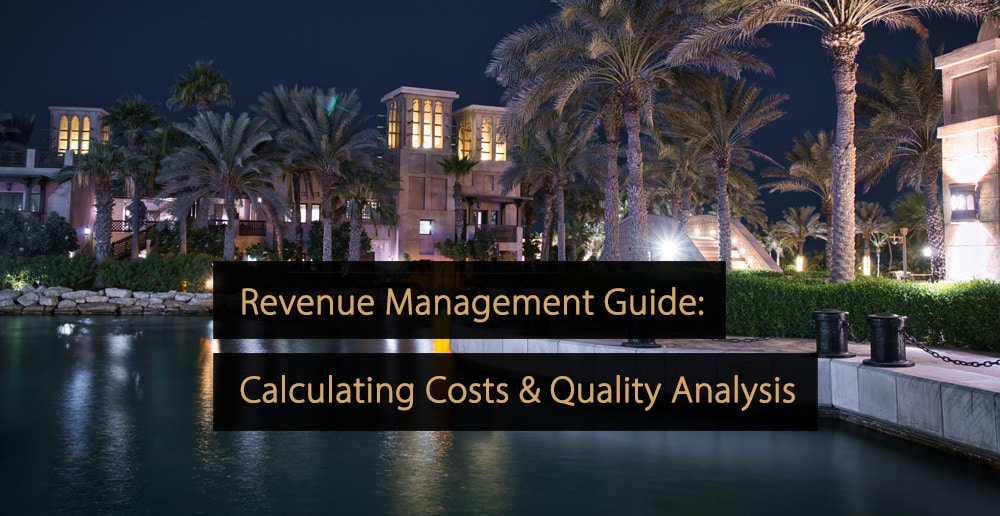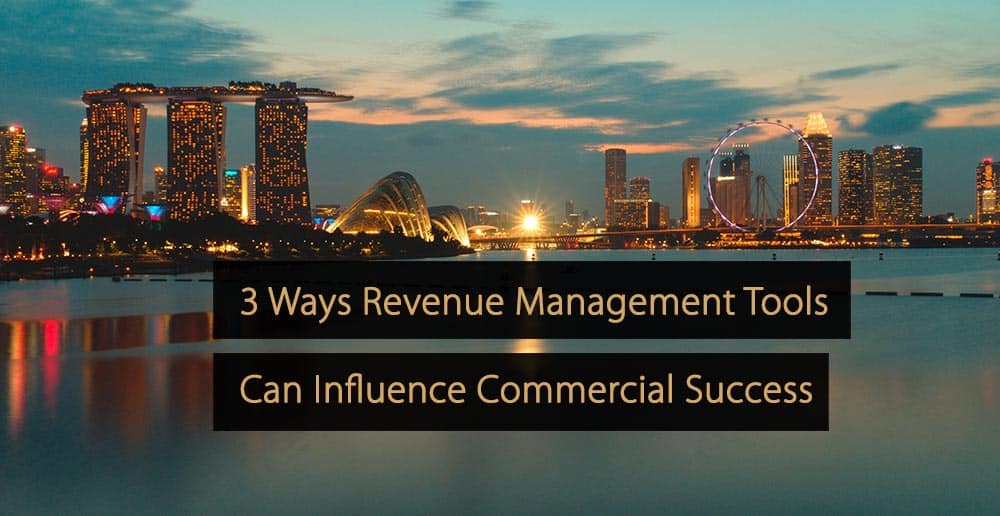Unless you’re operating a ski resort or fortunate enough to have a property located in a year-round warm-weather travel destination, the autumn and winter months can be particularly slow for hoteliers. These low-season booking conditions can lead to some hoteliers adopting an ‘a busy hotel is a successful hotel’ strategy, accepting lower-rated business and relying on the in-house spend on food & beverage, spa, and ancillary services to boost revenue.
While it might seem like a good enough plan on paper, this approach is misguided as the guests who are attracted to significantly lower room rates are also typically less likely to spend on the spa, luxury dining, or experiences needed to compensate for a cheap room rate.
Strategic Synergy: Aligning Revenue, Sales, and Marketing to Thrive in Off-Peak Seasons
Given the seasonal operating environment, many properties face, how should your hotel’s revenue, sales, and marketing teams work together to maximize revenue through the slower autumn and winter seasons?
To operate successfully through off-season periods, hotels need to ensure they have a good understanding of their historical performance. With that baseline set, they can compare and validate their current demand forecast against those benchmarks to better understand the exact position they are in and what they need to do to achieve their business goals.
Internal alignment is always important, particularly during the autumn and winter months. Revenue managers must work effectively with a hotel’s marketing department to develop and adjust promotions in relation to the available channels, resources, and marketing budget. If you truly want to steal the limited demand available in the market, a marketing plan to execute an offer that engages a guest is just as important as the curated offer itself.
Beyond Discounts: Crafting Personalized Incentives for Optimal Hotel Bookings in Low Seasons
Many hotels need to be smarter about how they price themselves and more considerate about which incentives they use or give away to attract business when faced with lower booking periods through the low season. Overuse of general incentives to attract guests can reduce the revenue coming into a property in the long run.
The best incentive offers are tailored and personalized to each booking segment’s motivations. Hoteliers should be asking themselves questions like: “Why should I provide an upgrade to the executive or concierge floor?” or, “Is this business traveler less price sensitive and likely willing to book the premium room type no matter what?”
When it comes to incentives, personalized experiences are key to attracting guests. Affluent Millennial and Gen-Z travelers have been referred to as ‘Native Explorers,’ as many of them now decide to travel close to home despite the ability to go to other countries and regions. Many of these travelers choose these destinations for proximity and ease of travel, along with unique nature/wellness experiences and luxury stays. However, the definition of what a “luxury” trip includes is also shifting, with younger travelers favoring unique experiences and high levels of customer service.
Precision in Promotions: Tailoring Hotel Campaigns for Diverse Guests
What motivates one group of potential guests, such as ‘Native Explorers,’ to book can be completely different from the next. Hotels need to design specific promotions for each channel or geographical region, taking booking lead time into account. For example, a hotel might consider enacting a promotion to attract corporate individual travelers, or a digital marketing campaign to attract direct booking to the brand website and the components of those offers should vary based on the audience’s needs. For any low-season promotion a hotel runs, revenue targets should be established and benchmarked against. Hotels should continue to monitor booking pace and occupancy forecast, adjusting the promotion and marketing allocations while they are still in play to ensure maximum success.
Don’t make the surprisingly common mistake of neglecting to track and review your marketing efforts. When any low-season promotions have run their course, hotels must conduct an intensive evaluation process of each campaign to assess the ROI of marketing spend. A record of all promotion schemes and production should also be kept to help with next year’s winter period activities.
Balancing the Books: Leveraging Revenue Management for Cost Efficiency
Of course, a hotel’s financial health isn’t just about the revenue coming in—there are expenses to account for. In seasons of lower demand, hotels must manage their costs effectively. Revenue management technology can increase efficiency and improve operational performance across an entire property, even in quieter operating periods. Advanced forecasting models or systems provide powerful insights into business demand, which assists with project planning and staffing.
For example, if a hotel can accurately anticipate lower levels of guest occupancy, it can ensure that the property is not overstaffed and carries unnecessary wage costs in this lower revenue phase. This same principle can be translated throughout the hotel’s entire operation for better overall maintenance, staffing, and inventory levels. In short, better forecasting leads to better planning and a better bottom line.
Applying blanket discounts or incentives to attract bookings through autumn and winter may be enough to survive the slow season. But survival is a low bar to clear, and hotels should aim higher. The hotels that monitor previous years’ booking patterns, build accurate demand forecasts, and develop specific campaigns for specific audiences are best positioned to thrive in a time of low demand.
Free Guide: The Ultimate RM Buyer’s Guide
More Tips to Grow Your Business
Revfine.com is the leading knowledge platform for the hospitality and travel industry. Professionals use our insights, strategies, and actionable tips to get inspired, optimize revenue, innovate processes, and improve customer experience.Explore expert advice on management, marketing, revenue management, operations, software, and technology in our dedicated Hotel, Hospitality, and Travel & Tourism categories.








Leave A Comment